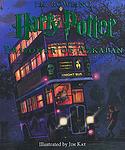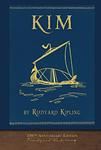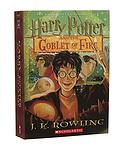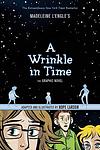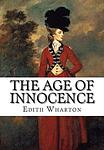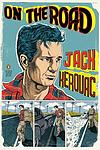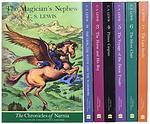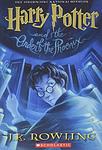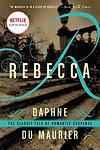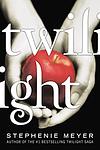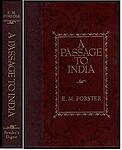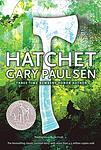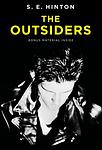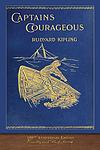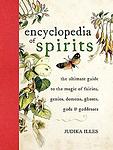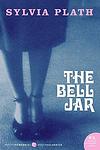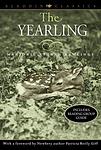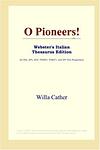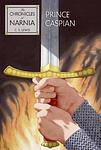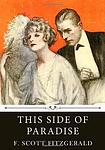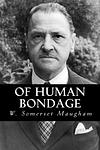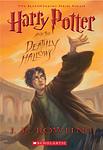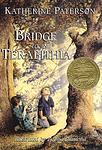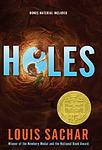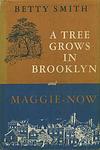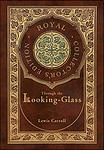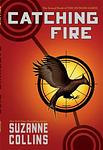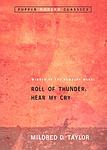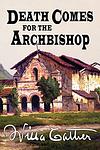The Complete 500: OCLC
This is one of the 305 lists we use to generate our main The Greatest Books list.
-
Tom Jones by Henry Fielding
This classic novel tells the story of Tom Jones, a charming and good-hearted but impulsive young man, who is expelled from his adoptive family home due to his wild behavior and love for the beautiful Sophia Western. His journey through 18th-century England is filled with adventures, misadventures, and a colorful cast of characters, as he struggles with his identity and seeks redemption. The narrative explores themes of class, virtue, and morality, and is known for its humor, social satire, and vivid characterization.
The 91st Greatest Book of All Time -
Harry Potter And The Prisoner Of Azkaban by J. K Rowling
In this third installment of the popular fantasy series, the protagonist enters his third year at a magical school, only to find out that a notorious prisoner has escaped from a supposedly inescapable prison and is believed to be after him. As the school year progresses, he learns more about his parents' history, uncovers secrets about his professor, and discovers a magical map. He also learns to summon a powerful defensive spell, confronts the escaped prisoner, and uncovers the truth about his parents' betrayal and death. The book ends with him saving an innocent life and learning a valuable lesson about the complexity of human nature and the importance of true friendship.
The 447th Greatest Book of All Time -
Kim by Rudyard Kipling
"Kim" is a thrilling adventure set in India during the height of the British empire. The story follows the life of a young Irish orphan, Kimball O'Hara, who grows up on the streets of Lahore. Kim's life takes a dramatic turn when he becomes involved in the 'Great Game', the political conflict between Russia and Britain in Central Asia. Guided by an old Tibetan Lama on a spiritual quest, Kim is recruited by the British secret service and sent on a dangerous mission across the Himalayas. The novel explores themes of identity, imperialism, and East vs. West.
The 214th Greatest Book of All Time -
The Sound and the Fury by William Faulkner
The novel is a complex exploration of the tragic Compson family from the American South. Told from four distinct perspectives, the story unfolds through stream of consciousness narratives, each revealing their own understanding of the family's decline. The characters grapple with post-Civil War societal changes, personal loss, and their own mental instability. The narrative is marked by themes of time, innocence, and the burdens of the past.
The 21st Greatest Book of All Time -
Harry Potter and the Goblet of Fire by J. K Rowling
In this fourth installment of a popular fantasy series, a young wizard finds himself unexpectedly entered into a dangerous tournament between rival schools of magic. He must compete in a series of challenging tasks, including a deadly dragon chase and a terrifying underwater rescue mission. Meanwhile, he's dealing with regular teen issues like crushes, jealousy, and school dances. But as he unravels the mystery behind his selection for the tournament, he uncovers a dark plot that puts his life in danger and hints at the return of a powerful dark wizard.
The 492nd Greatest Book of All Time -
The Mill on the Floss by George Eliot
"The Mill on the Floss" is a novel that explores the lives of siblings Tom and Maggie Tulliver, who grow up at Dorlcote Mill on the River Floss. The book delves into their experiences in the rural society of the time, their complex relationship, and the choices they make in adulthood. The story is marked by themes of love, betrayal, societal expectations, and the struggle between individual desires and family obligations. The tragic ending underscores the consequences of societal norms and the struggle against them.
The 332nd Greatest Book of All Time -
A Wrinkle In Time by Madeleine L'Engle
The novel follows the story of a young girl named Meg Murry, her younger brother Charles Wallace, and their friend Calvin O'Keefe as they embark on a cosmic journey to rescue Meg and Charles Wallace's father. The father, a scientist, has been missing since he discovered a new planet using the concept of Tesseract, which is a wrinkle in time. Guided by three mysterious celestial beings, the children travel across different dimensions, face evil forces, and learn about the power of love and self-sacrifice.
The 203rd Greatest Book of All Time -
The Hound of the Baskervilles by Arthur Conan Doyle
This classic mystery novel follows a detective and his partner as they investigate a supernatural hound that has been haunting the Baskerville family for generations, supposedly causing the death of the recent family head. As the pair navigate the eerie moors surrounding the Baskerville estate, they unravel a plot of deception and murder, all while trying to protect the new heir from the same grisly fate. The story is a thrilling blend of mystery, suspense, and horror.
The 122nd Greatest Book of All Time -
War of the Worlds by H. G. Wells
This classic science fiction novel tells the story of a Martian invasion of Earth, as experienced by an unnamed protagonist and his brother. The Martians, who are technologically far superior to humans, cause widespread devastation with their heat-ray weapons and towering tripods. Despite humanity's best efforts to resist, they seem unstoppable. The novel is a commentary on British imperialism and explores themes of human survival and evolution.
The 220th Greatest Book of All Time -
Middlemarch by George Eliot
Set in the fictitious English town of Middlemarch during the early 19th century, the novel explores the complex web of relationships in a close-knit society. It follows the lives of several characters, primarily Dorothea Brooke, a young woman of idealistic fervor, and Tertius Lydgate, an ambitious young doctor, who both grapple with societal expectations, personal desires, and moral dilemmas. Their stories intertwine with a rich tapestry of other townsfolk, reflecting themes of love, marriage, ambition, and reform, making a profound commentary on the human condition.
The 23rd Greatest Book of All Time -
The Age of Innocence by Edith Wharton
Set in the 1870s, the novel revolves around Newland Archer, a young lawyer from New York's high society, who is engaged to the beautiful and conventional May Welland. His life takes a turn when he meets May's cousin, the Countess Ellen Olenska, who has returned from Europe after leaving her scandalous husband. Torn between his duty and passion, Archer struggles with the constraints of the society he is a part of. The book offers a vivid portrayal of the struggle between individual desires and societal expectations in the upper-class New York society of the late 19th century.
The 88th Greatest Book of All Time -
The Color Purple by Alice Walker
Set in the early 20th century, the novel is an epistolary tale of a young African-American woman named Celie, living in the South. She faces constant abuse and hardship, first from her father and then from her husband. The story unfolds through her letters written to God and her sister Nettie, revealing her emotional journey from oppression to self-discovery and independence, aided by her relationships with strong women around her. The narrative explores themes of racism, sexism, domestic violence, and the power of sisterhood and love.
The 51st Greatest Book of All Time -
Northanger Abbey by Jane Austen
"Northanger Abbey" is a coming-of-age novel that follows the story of Catherine Morland, a young and naive girl who is invited to stay with the wealthy Tilney family at their estate, Northanger Abbey. Catherine's imagination is fueled by her love for gothic novels, leading her to create fantastical scenarios in her mind. As she navigates the complexities of society and falls in love, Catherine learns valuable lessons about the dangers of letting her imagination run wild and the importance of distinguishing reality from fiction.
The 998th Greatest Book of All Time -
East of Eden by John Steinbeck
This novel is a multi-generational epic that follows the lives of the Trask and Hamilton families in the Salinas Valley in California. The story is deeply rooted in biblical allegory, particularly the tale of Cain and Abel, as it explores themes of love, guilt, freedom, and the inherent good and evil in human nature. The narrative provides a profound, complex portrayal of family and individual struggles with morality and love, while also reflecting on the social changes affecting America during the late 19th and early 20th centuries.
The 320th Greatest Book of All Time -
On the Road by Jack Kerouac
This novel follows the story of a young man and his friend as they embark on a series of cross-country road trips across America during the late 1940s and early 1950s. The protagonist, driven by a desire for freedom and a quest for identity, encounters a series of eccentric characters and experiences the highs and lows of the Beat Generation. The narrative is a testament to the restlessness of youth and the allure of adventure, underscored by themes of jazz, poetry, and drug use.
The 40th Greatest Book of All Time -
Catch-22 by Joseph Heller
The book is a satirical critique of military bureaucracy and the illogical nature of war, set during World War II. The story follows a U.S. Army Air Forces B-25 bombardier stationed in Italy, who is trying to maintain his sanity while fulfilling his service requirements so that he can go home. The novel explores the absurdity of war and military life through the experiences of the protagonist, who discovers that a bureaucratic rule, the "Catch-22", makes it impossible for him to escape his dangerous situation. The more he tries to avoid his military assignments, the deeper he gets sucked into the irrational world of military rule.
The 18th Greatest Book of All Time -
Around the World in Eighty Days by Jules Verne
The novel follows the journey of a wealthy Englishman who makes a high-stakes wager that he can travel around the world in eighty days. Accompanied by his loyal French valet, they encounter numerous obstacles and adventures across different cultures and landscapes, including rescuing a beautiful Indian woman from a ritual sacrifice. The book is a celebration of the technological advancements of the 19th century, with the main characters utilizing various modes of transportation such as steamships, railways, and even an elephant.
The 947th Greatest Book of All Time -
Hard Times by Charles Dickens
This novel presents a social critique of industrial Victorian England through the story of the Gradgrind family. The patriarch, a staunch believer in the practicality of facts and statistics, raises his children in a sterile, emotionless environment, causing his daughter to enter a loveless marriage and his son to become a dissipated gambler. The narrative explores themes of industrialization, utilitarianism, and the dehumanizing effects of mechanization on the working class, ultimately advocating for a balanced education that includes both facts and feelings.
The 1450th Greatest Book of All Time -
Beloved by Toni Morrison
This novel tells the story of a former African-American slave woman who, after escaping to Ohio, is haunted by the ghost of her deceased daughter. The protagonist is forced to confront her repressed memories and the horrific realities of her past, including the desperate act she committed to protect her children from a life of slavery. The narrative is a poignant exploration of the physical, emotional, and psychological scars inflicted by the institution of slavery, and the struggle for identity and self-acceptance in its aftermath.
The 26th Greatest Book of All Time -
Mrs. Dalloway by Virginia Woolf
The novel chronicles a day in the life of Clarissa Dalloway, a high-society woman in post-World War I England, as she prepares for a party she is hosting that evening. Throughout the day, she encounters various characters from her past, including a former suitor and a shell-shocked war veteran. The narrative jumps back and forth in time and in and out of different characters' minds, exploring themes of mental illness, existentialism, and the nature of time.
The 36th Greatest Book of All Time -
To the Lighthouse by Virginia Woolf
This novel is a pioneering work of modernist literature that explores the Ramsay family's experiences at their summer home on the Isle of Skye in Scotland. The narrative is divided into three sections, focusing on a day in the family's life, a description of the house during their absence, and their return after ten years. The book is known for its stream of consciousness narrative technique and its exploration of topics such as the passage of time, the nature of art, and the female experience.
The 35th Greatest Book of All Time -
The Magician's Nephew by C. S. Lewis
The book is a prequel to the popular fantasy series, and tells the story of two children who stumble upon magical rings that transport them to different worlds. They encounter a wicked queen, awaken a powerful lion who creates a new world, and inadvertently bring the queen into this new world, setting the stage for the rest of the series. The book explores themes of creation, temptation, and the consequences of one's actions.
The 1700th Greatest Book of All Time -
Harry Potter and the Order of the Phoenix by J. K Rowling
In the fifth installment of this iconic series, the young wizard Harry Potter returns for his fifth year at Hogwarts School of Witchcraft and Wizardry, only to discover that much of the wizarding world, including the Ministry of Magic, is in denial about the teenager's recent encounter with the evil Lord Voldemort. Harry is also beset by disturbing dreams while the sinister prison guards of Azkaban have been stationed at Hogwarts to protect the school, and Harry's budding abilities as a wizard are put to the test. Meanwhile, a secret society, the Order of the Phoenix, is working to fight Voldemort and his followers, and Harry's role in the coming conflict is becoming ever more significant.
The 691st Greatest Book of All Time -
The Sun Also Rises by Ernest Hemingway
The novel is a poignant tale set in the 1920s post-World War I era, focusing on a group of American and British expatriates living in Paris who travel to Pamplona, Spain for the annual Running of the Bulls. The story explores themes of disillusionment, identity, and the Lost Generation, with the protagonist, a war veteran, grappling with impotence caused by a war injury. The narrative is steeped in the disillusionment and existential crisis experienced by many in the aftermath of the war, and the reckless hedonism of the era is portrayed through the characters' aimless wanderings and excessive drinking.
The 48th Greatest Book of All Time -
The Good Earth by Pearl S. Buck
This novel tells the story of a poor farmer in rural China, who struggles to survive and prosper. Over time, he manages to build a life for himself and his family, eventually becoming a wealthy landowner. However, his newfound wealth and status lead to a moral decline, as he becomes disconnected from the land that gave him everything. The narrative explores themes of wealth, poverty, and the human connection to the earth.
The 294th Greatest Book of All Time -
Silas Marner by George Eliot
Silas Marner, a weaver, is wrongfully accused of theft and excommunicated from his community in Lantern Yard. He moves to the village of Raveloe, where he lives as a recluse, hoarding his money. After his money is stolen, he adopts a young girl named Eppie, who was abandoned near his home. Eppie's presence transforms Silas's life, and he becomes a cherished member of the community. The novel explores themes of betrayal, redemption, and the transformative power of love.
The 408th Greatest Book of All Time -
Love in the Time of Cholera by Gabriel García Márquez
This novel follows the story of Florentino Ariza and Fermina Daza, who fall passionately in love in their youth. However, Fermina eventually marries a wealthy doctor, leaving Florentino heartbroken. Despite this, Florentino remains devoted to Fermina for over fifty years, patiently waiting for her husband's death to have another chance at her love. The story is set against the backdrop of a cholera epidemic, serving as a metaphor for the transformative power of love and the destructive power of obsession.
The 112th Greatest Book of All Time -
Rebecca by Daphne du Maurier
A young woman marries a wealthy widower and moves into his large English country house. She quickly realizes that the memory of her husband's first wife, Rebecca, haunts every corner of the estate. The housekeeper's obsessive devotion to Rebecca and the mysterious circumstances of her death continue to overshadow the second wife's attempts to make a happy life with her husband. As secrets about Rebecca's life and death are revealed, the new wife must grapple with her own identity and place within the household.
The 57th Greatest Book of All Time -
Jude the Obscure by Thomas Hardy
This novel tells the story of Jude Fawley, a working-class young man who dreams of becoming a scholar. The traditional class structure in 19th-century England prevents him from realizing his dream and his only solace is his love for his cousin, Sue Bridehead. Their scandalous relationship and the tragic events that follow form the heart of the narrative, which explores themes of love, class, religion, and morality.
The 231st Greatest Book of All Time -
Twilight by Stephenie Meyer
A high school girl moves to a small town in Washington where she falls in love with a mysterious classmate who is revealed to be a vampire. This revelation puts her in danger as other vampires pose a threat to her life. The book explores their complicated relationship, as well as the difficulties they face due to his supernatural nature.
The 1979th Greatest Book of All Time -
A Passage to India by E. M. Forster
The novel takes place in British-ruled India, where the cultural divide between the British and the Indians is explored. The story focuses on the experiences of an Indian Muslim, Dr. Aziz, and his interactions with an English woman, Miss Quested, and her elderly friend, Mrs. Moore. After an expedition to the Marabar Caves, Miss Quested accuses Dr. Aziz of assault, leading to a trial that deepens the racial tensions and prejudices between the colonizers and the colonized. The novel is a critique of British imperialism and a study of the cultural and racial misunderstandings and ill-will between the British and the Indian people.
The 53rd Greatest Book of All Time -
The Plague by Albert Camus
The novel is set in the Algerian city of Oran during the 1940s, where a deadly plague sweeps through, causing the city to be quarantined. The story is told through the eyes of a doctor who witnesses the horror and suffering caused by the disease. The narrative explores themes of human resilience, solidarity, and the struggle against the absurdities of life. It also examines how individuals and society respond to death and disease, creating a profound meditation on the nature of existence and human endurance.
The 135th Greatest Book of All Time -
Nicholas Nickleby by Charles Dickens
The story follows Nicholas Nickleby, a young man who becomes the head of his family after his father's death. He and his family are left penniless by an unscrupulous uncle, who also sends Nicholas to work in a cruel and abusive boarding school. Nicholas eventually escapes, travels the country, meets a variety of eccentric characters, and has many adventures. Throughout his journey, Nicholas struggles against adversity and the greed and cruelty of others, while aiming to protect his sister and mother. The novel is a social critique, highlighting the terrible conditions of schools and the plight of the poor in 19th-century England.
The 883rd Greatest Book of All Time -
The Pearl by John Steinbeck
A poor pearl diver's life is turned upside down when he discovers a giant, magnificent pearl. Initially seen as a blessing, it quickly becomes a curse as the man and his family are consumed by greed and paranoia. Despite their dreams of a better life, the pearl brings them nothing but misfortune and tragedy, leading them to question the true value of wealth and the destructive power it can hold.
The 3185th Greatest Book of All Time -
Ethan Frome by Edith Wharton
Set in a bleak New England landscape, the book tells the story of Ethan Frome, a poor, hardworking farmer who is married to a sickly, bitter woman named Zeena. When Zeena's young cousin Mattie comes to live with them, Ethan becomes infatuated with her, leading to a tragic love triangle. The narrative explores themes of passion, duty, and the oppressive nature of rural poverty.
The 366th Greatest Book of All Time -
The Tale of Genji by Murasaki Shikibu
"The Tale of Genji" is a classic work of Japanese literature from the 11th century, often considered the world's first novel. The story revolves around the life of Genji, the son of an emperor, exploring his political rise, romantic relationships, and the complex court life of the Heian era. The novel is celebrated for its detailed characterization and its analysis of the different forms of love.
The 155th Greatest Book of All Time -
The Giver by Lois Lowry
The book is set in a seemingly perfect community without war, pain, suffering, differences or choice, where everything is under control. The protagonist is chosen to learn from an elderly man about the true pain and pleasure of the "real" world. He discovers the dark secrets behind his fragile community and struggles to handle the burden of the knowledge of pain and the concept of individuality. He must decide whether to accept the status quo or break free, risking everything.
The 600th Greatest Book of All Time -
The Alchemist by Paulo Coelho
A young Andalusian shepherd named Santiago dreams of finding a worldly treasure and sets off on a journey across the Egyptian desert in search of it. Along the way, he encounters a series of characters who impart wisdom and help guide his spiritual journey. The novel explores themes of destiny, personal legend, and the interconnectedness of all things in the universe. The boy learns that true wealth comes not from material possessions, but from self-discovery and attaining one's "Personal Legend".
The 308th Greatest Book of All Time -
The Strange Case of Dr. Jekyll and Mr. Hyde by Robert Louis Stevenson
This classic novel explores the duality of human nature through the story of a respected London doctor who creates a potion that transforms him into a sinister, violent alter ego. As the doctor increasingly loses control over when the transformations occur, his alter ego's evil deeds escalate, causing havoc in the community. The narrative is a chilling exploration of humanity's capacity for evil and the struggle for individuals to reconcile their public personas with their private desires.
The 233rd Greatest Book of All Time -
Robinson Crusoe by Daniel Defoe
The book is a classic adventure novel about a man who spends 28 years on a remote tropical island near Trinidad, encountering cannibals, captives, and mutineers before being rescued. The story is noted for its realistic portrayal of the protagonist's physical and psychological development and for its detailed depiction of his attempts to create a life for himself in the wilderness. The novel has been interpreted as an allegory for the development of civilization, as well as a critique of European colonialism.
The 77th Greatest Book of All Time -
Tender Is the Night by F. Scott Fitzgerald
Set in the French Riviera in the 1920s, the novel traces the tragic tale of a young psychiatrist, his beautiful wife, and the drama that unfolds amongst their circle of wealthy expatriate friends. The psychiatrist's wife suffers from mental illness, which leads to his own downfall as he struggles to keep his marriage intact and maintain his professional reputation. The narrative explores themes of wealth, love, desire, and the destructive power of obsession, painting a haunting portrait of the dark side of the glamorous Jazz Age.
The 168th Greatest Book of All Time -
The Idiot by Fyodor Dostoevsky
The book follows the story of a kind-hearted and naive protagonist who returns to Russia from a Swiss sanatorium, where he was treated for a severe epileptic condition. Despite his pure intentions, he gets entangled in a web of love, greed, and manipulation, leading to tragic consequences. The novel explores themes of innocence, love, sacrifice, and societal expectations, offering a profound critique of Russian society during the 19th century.
The 109th Greatest Book of All Time -
Hatchet by Gary Paulsen
A 13-year-old boy survives a plane crash in the Canadian wilderness and is left to fend for himself with only a hatchet his mother gave him as a present. Over the course of several months, he learns to hunt, fish, and forage for food while also dealing with wild animals, harsh weather, and loneliness. Through a series of flashbacks, he also confronts painful memories from his past, and ultimately, he emerges stronger and more mature from his ordeal.
The 2874th Greatest Book of All Time -
The Kite Runner by Khaled Hosseini
This novel is a powerful story set against the backdrop of tumultuous events in Afghanistan, from the fall of the monarchy through the Soviet invasion and the rise of the Taliban regime. It follows the life of a wealthy boy and his best friend, a servant's son, their shared love for kite flying, and a terrible incident that tears their lives apart. The narrative explores themes of guilt, betrayal and redemption as the protagonist, now an adult living in America, is called back to his war-torn homeland to right the wrongs of his past.
The 736th Greatest Book of All Time -
One Flew Over the Cuckoo's Nest by Ken Kesey
Set in a psychiatric hospital in Oregon, the novel is narrated by a half-Native American patient known as Chief Bromden, who pretends to be deaf and mute. The story follows the arrival of a new patient, a boisterous, rebellious man who challenges the oppressive and dehumanizing system of the hospital, particularly the tyrannical Nurse Ratched. The book explores themes of individuality, rebellion, and the misuse of power, ultimately leading to a tragic conclusion.
The 98th Greatest Book of All Time -
The Portrait of a Lady by Henry James
This classic novel explores the life of a young, independent American woman who inherits a large amount of money and moves to Europe, where she falls into a manipulative and oppressive marriage. The story delves into themes of personal freedom, responsibility, and betrayal, as the protagonist navigates the complexities of high society, love, and the consequences of her choices.
The 63rd Greatest Book of All Time -
The Outsiders by S. E. Hinton
The book is a coming-of-age story focusing on a group of teenage boys living in a poor neighborhood. They are constantly at odds with the affluent kids from the other side of town, leading to violent gang fights. The story, narrated by a 14-year-old boy, explores themes such as class conflict, friendship, and the loss of innocence. It also delves into the struggles of the protagonist as he grapples with his identity, societal expectations, and the harsh realities of life.
The 664th Greatest Book of All Time -
Ben-Hur by Lew Wallace
"Ben-Hur" is a historical novel that tells the story of Judah Ben-Hur, a Jewish prince from Jerusalem who is enslaved by the Romans after being falsely accused of an attempted assassination. After years of hardship, he becomes a successful charioteer and eventually gets a chance to take revenge on the man who wronged him. Along the way, he encounters Jesus Christ and becomes a follower. The book is a tale of adventure, betrayal, revenge, and redemption set against the backdrop of the life of Christ.
The 969th Greatest Book of All Time -
The Mayor of Casterbridge by Thomas Hardy
The Mayor of Casterbridge is a tragic novel set in the fictional town of Casterbridge, based on Dorchester in the English county of Dorset. The story follows the life of Michael Henchard, a skilled hay-trusser who, in a fit of drunken anger, sells his wife and daughter at a fair. When he sobers up, he is filled with regret and swears off alcohol for 21 years. He works hard and eventually becomes a successful businessman and the mayor of Casterbridge. However, his past returns to haunt him when his wife and daughter come back into his life, leading to a series of events that result in his downfall.
The 253rd Greatest Book of All Time -
Cry, the Beloved Country by Alan Paton
"Cry, the Beloved Country" is a novel about a black Anglican priest from South Africa's rural Natal region who embarks on a journey to Johannesburg in search of his sister and son. The priest grapples with the racial injustice and social inequality of apartheid-era South Africa, while his son becomes involved in political activism and is wrongfully accused of a crime. The novel explores themes of love, fear, and social justice, while highlighting the destructive effects of apartheid on the human spirit and the South African landscape.
The 338th Greatest Book of All Time -
The Last Battle: The Chronicles of Narnia by C. S. Lewis
In the final installment of the series, Narnia faces its darkest hour. A false Aslan is commanding everyone to work tirelessly for the cruel Calormenes. Many Narnians are deceived by this false god and his prophet, an ape. However, a small band of loyal Narnians, led by King Tirian, fights back against the invaders. The friends of Narnia, children from another world, are summoned once again to help in this last battle. The fate of Narnia hangs in the balance and the final battle between good and evil determines the future of the magical land.
The 1083rd Greatest Book of All Time -
Captains Courageous by Rudyard Kipling
This classic novel follows the transformative journey of Harvey Cheyne Jr., a spoiled and wealthy American teenager who falls overboard from a luxury ocean liner and is rescued by a fishing vessel on the Grand Banks of Newfoundland. Under the tough but fair guidance of the ship's captain and the hardworking crew, Harvey is forced into labor to earn his keep. Through his experiences at sea, facing the harsh realities of life and the value of honest work, Harvey undergoes a profound character transformation. The story is a vivid portrayal of maritime life and a timeless tale of adventure, discipline, and personal growth.
The 5885th Greatest Book of All Time -
The Castle by Franz Kafka
This novel presents the story of a man who arrives in a village and struggles to gain access to the mysterious authorities who govern it from a castle. The protagonist, a surveyor, faces the constant frustration of his efforts to make contact with the elusive authorities and integrate into village society. The book explores themes of alienation, bureaucracy, the seemingly endless frustrations of man's attempts to stand against the system, and the futile pursuit of an unobtainable goal.
The 133rd Greatest Book of All Time -
The Metamorphosis by Franz Kafka
The book tells the story of a man who wakes up one morning to find himself transformed into a giant insect. His transformation causes him to lose his job and become ostracized from his family, who are horrified and repulsed by his new form. As he grapples with his new reality, he becomes increasingly isolated and starts to lose his sense of humanity. The book explores themes of alienation, guilt, and identity, and is a profound examination of the human condition.
The 123rd Greatest Book of All Time -
The Magic Mountain by Thomas Mann
In this novel, the protagonist, a young, ordinary man, visits his cousin at a tuberculosis sanatorium in the Swiss Alps. Intending to stay for only a few weeks, he ends up remaining there for seven years, becoming a patient himself. The book explores his experiences and relationships with other patients and staff, delving into philosophical discussions on life, time, and the nature of disease. It also provides a vivid portrayal of the European society and intellectual life on the eve of World War I.
The 43rd Greatest Book of All Time -
James and the Giant Peach by Roald Dahl
A young boy named James, after being orphaned and forced to live with his cruel aunts, embarks on a magical adventure inside a giant peach. Alongside a group of anthropomorphic insects who also reside in the peach, James navigates through a series of fantastical events, including battling pirate-like creatures and flying across the Atlantic Ocean to New York City. This whimsical journey helps James escape his miserable life and find a new family amongst his insect friends.
The 849th Greatest Book of All Time -
The Horse and His Boy: The Chronicles of Narnia by C. S. Lewis
This book is the third installment in a popular fantasy series and follows a young boy and a talking horse as they embark on a dangerous journey to escape from their lives of servitude in the south. Along the way, they encounter a young runaway and her talking horse, and together, they journey north to the magical land of Narnia. Along their journey, they discover that they are part of a greater destiny and that their lives are intertwined with the fate of Narnia itself.
The 2836th Greatest Book of All Time -
Angels & Demons by Dan Brown
In this fast-paced thriller, a renowned symbologist is called to the Swiss research facility CERN to investigate a mysterious symbol seared into the chest of a murdered physicist. His investigation leads him to the Vatican City, where he uncovers the resurgence of an ancient secret brotherhood known as the Illuminati. As a conclave is underway to elect a new Pope, the symbologist and a gifted Italian scientist race against time to prevent a powerful time bomb from destroying the Vatican. They embark on a frantic hunt through sealed crypts, dangerous catacombs, and deserted cathedrals, following a 400-year-old trail of ancient symbols that snake across Rome to the long-forgotten Illuminati lair.
The 2767th Greatest Book of All Time -
The Voyage of the Dawn Treader: The Chronicles of Narnia by C. S. Lewis
The third installment in a fantasy series, "The Voyage of the Dawn Treader" follows the adventure of Edmund and Lucy Pevensie, along with their cousin Eustace, as they are magically drawn into a painting and onto a Narnian ship headed for the edges of the world. Alongside their old friend, King Caspian, they encounter sea serpents, dragons, and new lands filled with strange creatures as they journey to the end of the world. The novel explores themes of courage, friendship, and the struggle between good and evil.
The 1612th Greatest Book of All Time -
The Bell Jar by Sylvia Plath
The novel follows the story of a young woman who wins a guest editorship at a magazine in New York City and, after a series of personal and professional disappointments, suffers a mental breakdown and returns to her family, where she continues to struggle with depression and suicidal thoughts. The protagonist's experiences in psychiatric institutions and her attempts to reclaim her life are depicted with brutal honesty, making it a poignant exploration of mental illness and the societal pressures faced by women in the mid-20th century.
The 78th Greatest Book of All Time -
Women in Love by D. H. Lawrence
"Women in Love" is a novel that explores the complex relationships of two sisters, Ursula and Gudrun Brangwen, as they navigate their passions, desires, and connections with two men, Rupert Birkin and Gerald Crich, in post-World War I England. The novel delves deep into the psychological aspects of love, questioning traditional romantic love and proposing a more modern, individualistic approach to relationships. It also explores themes of industrialization, modernity, and the nature of human existence.
The 228th Greatest Book of All Time -
The Yearling by Marjorie Kinnan Rawlings
"The Yearling" is a coming-of-age story set in the late 19th century, in the scrubland of Florida. It follows a young boy who adopts an orphaned baby deer and nurtures it into adulthood. As the deer grows, it begins to cause problems for the boy's family, who are struggling to survive as subsistence farmers. The boy is eventually forced to choose between his love for the deer and his responsibility to his family, leading to a heartbreaking decision that marks his transition into adulthood.
The 1009th Greatest Book of All Time -
O Pioneers! by Willa Cather
"O Pioneers!" is a novel about a Swedish-American immigrant family's struggles and successes in the great plains during the late 19th century. The story centers on the family's eldest daughter, who inherits the family farm and devotes her life to making it thrive despite the hardships of weather, personal loss, and societal expectations. The novel explores themes of love, gender, land ownership, and the harsh realities of frontier life.
The 1353rd Greatest Book of All Time -
The Handmaid's Tale by Margaret Atwood
Set in a dystopian future, this novel presents a society where women are stripped of their rights and are classified into various roles based on their fertility and societal status. The protagonist is a handmaid, a class of women used solely for their reproductive capabilities by the ruling class. The story is a chilling exploration of the extreme end of misogyny, where women are reduced to their biological functions, and a critique of religious fundamentalism.
The 70th Greatest Book of All Time -
The Moonstone by Wilkie Collins
"The Moonstone" is a detective novel that revolves around a large, valuable yellow diamond that was stolen from an Indian temple and is now in England. The diamond is bequeathed to a young woman on her eighteenth birthday, but is stolen that same night. The novel follows the investigation of the theft, which is complicated by a series of confusing events and false leads. The resolution involves the unraveling of a tangled web of deception, crime, and colonial guilt.
The 297th Greatest Book of All Time -
The Old Curiosity Shop by Charles Dickens
The Old Curiosity Shop tells the story of Little Nell Trent, a beautiful and virtuous young girl who lives with her grandfather in his shop of curiosities. After her grandfather loses his entire fortune with his gambling addiction, he and Nell are forced to leave their home and live as beggars. The novel follows their journey across England and the various characters they meet along the way, including the villainous dwarf Quilp, who pursues them relentlessly. The book is a mix of humor and pathos, exploring themes of virtue, resilience, and the harsh realities of life in 19th-century England.
The 1300th Greatest Book of All Time -
Little Dorrit by Charles Dickens
"Little Dorrit" is a classic novel that revolves around the life of Amy Dorrit, a young woman who was born and raised in Marshalsea Prison where her father is incarcerated due to debt. The narrative explores themes of imprisonment and freedom, wealth and poverty, as well as social criticism of Victorian England. As Amy navigates her life in and out of the prison, her journey intertwines with that of Arthur Clennam, a man who returns to England after his father's death and becomes determined to solve a family mystery that involves the Dorrits.
The 854th Greatest Book of All Time -
Prince Caspian: The Return to Narnia by C. S. Lewis
In this fantasy novel, four siblings are magically transported back to the realm of Narnia, where they find that centuries have passed and the land is ruled by a tyrannical king. They join forces with the rightful heir to the throne, a young prince, and an assortment of mystical creatures to restore peace and justice to the kingdom. The story is filled with battles, adventures, and lessons about courage, friendship, and faith.
The 2837th Greatest Book of All Time -
Sister Carrie by Theodore Dreiser
The novel follows a young country girl who moves to the big city where she starts realizing her own American Dream by first becoming a mistress to men she perceives as superior and later as a famous actress. It is a portrayal of the realities of the modern city and the complexities of the modern world, illustrating the influence of consumer culture on the individual. Despite her moral decline, the protagonist's rise to fame seems to defy the conventional social norms and moral values, making the novel a notable instance of naturalist literature.
The 416th Greatest Book of All Time -
The Silver Chair: The Chronicles of Narnia by C. S. Lewis
In this installment of the Chronicles of Narnia series, Eustace Scrubb and Jill Pole are called to Narnia by Aslan, the great lion, to find and rescue Prince Rilian, the missing son of now elderly King Caspian. Their journey takes them deep into the underworld, where they encounter a variety of strange and dangerous creatures, including the enchanting and malevolent Green Lady. With faith, courage, and the guidance of a few loyal friends, the children strive to fulfill their mission and return the lost prince to his rightful place.
The 2838th Greatest Book of All Time -
The Hunger Games by Suzanne Collins
Set in a dystopian future, the novel revolves around a teenager named Katniss Everdeen, who lives in a post-apocalyptic nation where the government, in order to maintain control, forces each of its twelve districts to send a boy and girl to participate in a televised annual event. This event, known as the Hunger Games, is a fight to the death. When Katniss's younger sister is selected to participate, Katniss volunteers to take her place. The book follows her struggle for survival in the cruel game, against the backdrop of a brewing rebellion against the oppressive regime.
The 865th Greatest Book of All Time -
This Side of Paradise by F. Scott Fitzgerald
This novel follows the life of Amory Blaine, an attractive and privileged young man who grows up in the early 20th century United States. It explores his experiences in prep school, at Princeton University, and in the real world after graduation, as well as his relationships with a series of young women. The protagonist's life is marked by his pursuit of wealth, status, and love, and his eventual disillusionment with the values of his society. The novel is a critique of the American Dream and a reflection on the lost generation of the 1920s.
The 1555th Greatest Book of All Time -
Eugenie Grandet by Honoré de Balzac
"Eugenie Grandet" is a classic French novel that explores the life of a wealthy and miserly provincial businessman and his daughter, Eugenie. The father's obsession with wealth and his refusal to spend any of it leads to a life of hardship for Eugenie, who is in love with her penniless cousin. The novel delves into themes of wealth, love, sacrifice, and the complexities of human nature, shedding light on the oppressive social norms of 19th-century French provincial life.
The 540th Greatest Book of All Time -
Of Human Bondage by W. Somerset Maugham
The novel follows the life of Philip Carey, a club-footed orphan who struggles with his disability and his passionate and unrequited love for a destructive woman. His journey takes him from a strict religious upbringing in England to an adventurous life in Paris where he attempts to become an artist before finally settling into a career in medicine. The story is a powerful exploration of human desire, ambition, and the search for meaning in life.
The 267th Greatest Book of All Time -
Dream of the Red Chamber by Cao Xueqin
"Dream of the Red Chamber" is a classic Chinese novel that provides a detailed, episodic record of life in the aristocratic Jia family. The story revolves around the love triangle between the family's heir, his sickly cousin, and his other cousin who is raised to be his wife. It is also a critique of the family's decline and a reflection on the societal norms of the time. The novel is famous for its vivid characterization and psychological depth, and its unique portrayal of Chinese society during the Qing dynasty.
The 585th Greatest Book of All Time -
Life of Pi by Yann Martel
A young Indian boy named Pi Patel survives a shipwreck and finds himself adrift in the Pacific Ocean on a lifeboat with a Bengal tiger named Richard Parker. Over the course of 227 days, Pi uses his knowledge of animal behavior and survival skills to coexist with the tiger, ultimately leading to an unusual and deeply spiritual journey. The story explores themes of faith, survival, and the interpretation of reality.
The 565th Greatest Book of All Time -
Harry Potter and the Deathly Hallows by J. K Rowling
In the final installment of this popular series, the protagonist and his friends decide to leave their school to complete the mission left to them by their late headmaster - to destroy the remaining pieces of the antagonist's soul, hidden in various objects. As they journey through the wizarding world, they uncover the truth about the antagonist's past and the legend of the Deathly Hallows. Amidst the escalating war, they are captured and narrowly escape, leading to the ultimate battle at their school where many lives are lost. The protagonist learns he must sacrifice himself to truly defeat the antagonist, but is given a second chance at life and finally triumphs, ending the war. The story concludes with a glimpse into the peaceful future they have all earned.
The 878th Greatest Book of All Time -
Invisible Man by Ralph Ellison
The novel is a poignant exploration of a young African-American man's journey through life, where he grapples with issues of race, identity, and individuality in mid-20th-century America. The protagonist, who remains unnamed throughout the story, considers himself socially invisible due to his race. The narrative follows his experiences from the South to the North, from being a student to a worker, and his involvement in the Brotherhood, a political organization. The book is a profound critique of societal norms and racial prejudice, highlighting the protagonist's struggle to assert his identity in a world that refuses to see him.
The 28th Greatest Book of All Time -
Steppenwolf by Hermann Hesse
The novel presents a poignant exploration of a man's struggle with his dual nature. The protagonist, a middle-aged man, finds himself torn between his humanistic, intellectual tendencies and his more primitive, wolf-like instincts. As he navigates his way through the surreal and sometimes hallucinatory world, he encounters various characters who challenge his views and push him towards self-discovery and transformation. The narrative delves into themes of alienation, the subconscious mind, and the search for meaning in life.
The 147th Greatest Book of All Time -
The Sorrows of Young Werther by Johann Wolfgang von Goethe
This classic novel follows the emotional journey of a young artist named Werther, who falls deeply in love with a beautiful woman named Lotte, only to discover that she is already engaged to another man. His unrequited love and deep despair eventually lead him to take his own life. The story, told through letters written by Werther, explores themes of love, loss, and the tragic consequences of emotional turmoil.
The 289th Greatest Book of All Time -
Bridge to Terabithia by Katherine Paterson
This novel follows the story of two young friends, Jess and Leslie, who create a magical kingdom called Terabithia in the woods where they spend their free time. Their friendship deepens as they rule over Terabithia, facing and overcoming various challenges together. However, a tragic accident results in Leslie's death, leaving Jess devastated. The story concludes with Jess learning to cope with his grief, and finding the courage to introduce his little sister to the magical world of Terabithia, thereby keeping Leslie's memory alive.
The 2427th Greatest Book of All Time -
The Invisible Man by H. G. Wells
The book is a gripping science fiction tale about a scientist who discovers a way to make himself invisible. However, the inability to reverse the process leads him into madness and terror. The narrative explores themes of alienation, social responsibility, and the moral implications of scientific advancement. The invisible man's struggle with his condition and society's reaction to his invisibility serve as a critique of humanity's fear and misunderstanding of the unknown.
The 1654th Greatest Book of All Time -
Holes by Louis Sachar
This book follows the story of a young boy who is falsely accused of stealing a pair of sneakers and is sent to a juvenile detention center in the middle of a desert. Here, the boys are made to dig holes every day as a form of punishment. As the protagonist digs, he discovers the truth about the warden's obsession with the holes, the mystery of a hidden treasure, and a curse that has been haunting his family for generations. The story is a blend of adventure, mystery, and coming-of-age themes.
The 1424th Greatest Book of All Time -
Siddhartha by Hermann Hesse
"Siddhartha" is a novel about the spiritual journey of a young man named Siddhartha during the time of Gautama Buddha. Born into an Indian Brahmin family, Siddhartha rejects his privileged life to seek spiritual enlightenment. His journey takes him through periods of harsh asceticism, sensual indulgence, material wealth, and finally, to the simple life of a ferryman on a river where he finds peace and wisdom. The book explores themes of self-discovery, spiritual quest, and the desire for a meaningful life.
The 236th Greatest Book of All Time -
A Tree Grows in Brooklyn by Betty Smith
This classic novel follows the life of Francie Nolan, a young girl growing up in the slums of early 20th century Brooklyn. The narrative explores her experiences with poverty, her pursuit of education, and her dreams of a better life. The tree in the title serves as a symbol of her resilience and hope, growing and thriving despite the harsh conditions around it, much like Francie herself.
The 206th Greatest Book of All Time -
Through the Looking Glass by Lewis Carroll
This sequel to Alice's Adventures in Wonderland sees the young protagonist, Alice, embarking on another whimsical journey after stepping through a looking glass. In this mirror-image world, Alice encounters talking flowers, living chess pieces, and a variety of eccentric characters, including Tweedledee and Tweedledum, the Red Queen, and Humpty Dumpty. The narrative is structured around a game of chess, with Alice striving to become a queen. The book is filled with clever wordplay, riddles, and fantastical elements, reflecting the author's unique take on logic and language.
The 402nd Greatest Book of All Time -
In Cold Blood by Truman Capote
This true crime novel tells the story of the brutal 1959 murder of a wealthy farmer, his wife and two of their children in Holcomb, Kansas. The narrative follows the investigation led by the Kansas Bureau of Investigation that ultimately leads to the capture, trial, and execution of the killers. The book explores the circumstances surrounding this horrific crime and the effects it had on the community and the people involved.
The 76th Greatest Book of All Time -
The House of the Spirits by Isabel Allende
"The House of the Spirits" is a multi-generational saga that explores the lives of the Trueba family, set against the backdrop of political upheaval in an unnamed Latin American country. The narrative is driven by the family's strong and magical women, including clairvoyant Clara and her granddaughter Alba. The story spans over three generations, weaving together personal, social, and political threads, and is rich in elements of magical realism. The novel explores themes of love, violence, social class, and the struggle for power.
The 167th Greatest Book of All Time -
Adam Bede by George Eliot
"Adam Bede" is a 19th-century novel set in rural England that explores the themes of love, betrayal, and moral responsibility. The story revolves around a hardworking carpenter, Adam Bede, who is in love with a vain but beautiful dairymaid, Hetty Sorrel. However, Hetty is seduced by a young, thoughtless squire, Arthur Donnithorne, which leads to her becoming pregnant. When Arthur abandons her, Hetty leaves her baby in the woods, where it dies, and she is subsequently charged with infanticide. Adam, devastated by Hetty's actions, finds solace and eventually love with a devout Methodist preacher, Dinah Morris. The novel ends with Adam and Dinah marrying, finding happiness after the tragedy.
The 470th Greatest Book of All Time -
The Betrothed by Alessandro Manzoni
"The Betrothed" is a historical novel set in Lombardy, Italy during the 17th century, in the midst of political and religious turmoil. The story follows the journey of two peasants, Renzo and Lucia, who are in love and wish to marry. However, their plans are thwarted by a corrupt local baron who desires Lucia for himself, and a cowardly priest who refuses to stand up to the baron. The couple are forced to flee, facing numerous hardships and adventures, while their faith and love for each other are continually tested. The novel explores themes of love, faith, and the struggle for justice.
The 479th Greatest Book of All Time -
The Book Thief by Markus Zusak
Set in Nazi Germany during World War II, the novel follows the story of a young girl who finds solace in stealing books and sharing them with others. In the midst of the horrors of war, she forms a bond with a Jewish man her foster parents are hiding in their basement. The story is narrated by Death, offering a unique perspective on the atrocities and small acts of kindness during this period. The girl's love for books becomes a metaphor for resistance against the oppressive regime.
The 551st Greatest Book of All Time -
Their Eyes Were Watching God by Zora Neale Hurston
This novel follows the life of Janie Crawford, a young African-American woman, in the early 20th century. She embarks on a journey through three marriages and self-discovery while challenging the societal norms of her time. The narrative explores her struggle for personal freedom, fulfillment, and identity against the backdrop of racism and gender expectations, ultimately emphasizing the importance of independence and personal growth.
The 49th Greatest Book of All Time -
One Day in the Life of Ivan Denisovich by Aleksandr Solzhenitsyn
This novel provides a detailed account of a single day in the life of a prisoner, Ivan Denisovich, in a Soviet labor camp in the 1950s. The narrative follows Ivan as he navigates the harsh realities of his daily routine, from the moment he wakes up to when he goes to bed. The book provides a stark portrayal of the brutality and inhumanity of the Soviet gulag system while also highlighting the resilience and dignity of the human spirit under such oppressive conditions.
The 187th Greatest Book of All Time -
The Sea-Wolf by Jack London
"The Sea-Wolf" is a gripping adventure novel that tells the story of a refined literary critic who is rescued from a shipwreck by a brutal sea captain. The protagonist is forced to adapt to the harsh life of a sailor while clashing with the captain, a cruel and amoral man who believes in the survival of the fittest. As the narrative progresses, the protagonist not only survives but thrives, proving that gentleness and civilization are not signs of weakness. Eventually, he manages to escape the ship with a woman who was also rescued, and they end up stranded on a deserted island where they fall in love and start a new life.
The 3653rd Greatest Book of All Time -
Catching Fire by Suzanne Collins
In this gripping sequel set in a dystopian future, the story continues with the protagonist and her fellow victor reluctantly embarking on a "Victory Tour" across the districts, following their unprecedented win in the brutal Hunger Games. Their attempt to maintain a facade of compliance with the Capitol quickly unravels, revealing their subtle defiance, which unwittingly sparks rebellion across the oppressed districts. As the government seeks to regain control and quash the growing dissent, the protagonists are thrust back into a more sinister version of the Games, designed to eliminate them and quell the burgeoning uprising. Amidst evolving alliances and unexpected betrayals, the fight for survival becomes a fight for the future of their society.
The 9230th Greatest Book of All Time -
Roll of Thunder, Hear My Cry by Mildred D. Taylor
Set in Mississippi during the Great Depression, this novel follows the life of a young African American girl and her family who are struggling to maintain their integrity, pride, and independence in the face of racism and social injustice. The family owns a piece of land which provides them some protection from the harsh realities of racial discrimination. The story is a poignant exploration of how they navigate through a prejudiced society, face social and economic challenges, and fight to keep their land.
The 571st Greatest Book of All Time -
Death Comes for the Archbishop by Willa Cather
This novel follows the life of a Catholic bishop and a vicar as they attempt to establish a diocese in New Mexico Territory. The story highlights their struggles and triumphs over the course of 40 years, dealing with the harsh landscape, cultural differences, and the challenges of faith. It also explores the history and culture of the Southwest, including the influence of Mexican and Native American traditions.
The 630th Greatest Book of All Time -
The House of Mirth by Edith Wharton
Set in the backdrop of New York's high society during the turn of the 20th century, the novel follows the life of Lily Bart, a beautiful but impoverished woman of social standing. As she navigates the pressures and expectations of her social circle, Lily grapples with the need to secure a wealthy husband to maintain her lifestyle. However, her romantic inclinations and her desire for personal freedom come into conflict with societal norms, leading to her tragic downfall.
The 150th Greatest Book of All Time -
Light in August by William Faulkner
Set in the American South during the 1930s, this novel explores complex social and personal issues through the intertwining stories of its characters. The narrative primarily follows a man of ambiguous racial identity on a quest to find his father, a pregnant woman searching for the father of her unborn child, and a disgraced minister attempting to navigate his own moral compass. The book delves into themes of identity, race, and the human struggle for understanding and redemption, all set against the backdrop of the deep-rooted prejudices and social norms of the time.
The 163rd Greatest Book of All Time -
The Pickwick Papers by Charles Dickens
The book is a humorous and satirical depiction of English society in the 19th century, told through the travels and adventures of a group of gentlemen from London, led by a kind-hearted and naive man. Their escapades take them to various locales where they encounter a plethora of eccentric characters and find themselves in comical and sometimes absurd situations. The narrative is interspersed with tales and anecdotes told by the characters themselves, adding to the richness and diversity of the overall story.
The 213th Greatest Book of All Time
OCLC, 497 Books
This list is from OCLC and is a bit different than most lists on this site. OCLC is a global library organization that provides shared technology services, original research, and community programs for its membership and the library community at large. This list is based on how many libraries have a copy of a book on their shelves. Here's their own description:
What makes a novel “great”? At OCLC, we believe literary greatness can be measured by how many libraries have a copy on their shelves.
Yes, libraries offer access to trendy and popular books. But, they don’t keep them on the shelf if they’re not repeatedly requested by their communities over the years. We’ve identified 500 timeless, top novels—those found in thousands of libraries around the world—using WorldCat, the world’s largest database of library materials'.
This list has a weight of 44%. To learn more about what this means please visit the Rankings page.
Here is a list of what is decreasing the importance of this list:
- Voters: not critics, authors, or experts
- List: Creator of the list, sells the books on the list
- List: contains over 500 books(Quantity over Quality)
If you think this is incorrect please e-mail us at [email protected].

